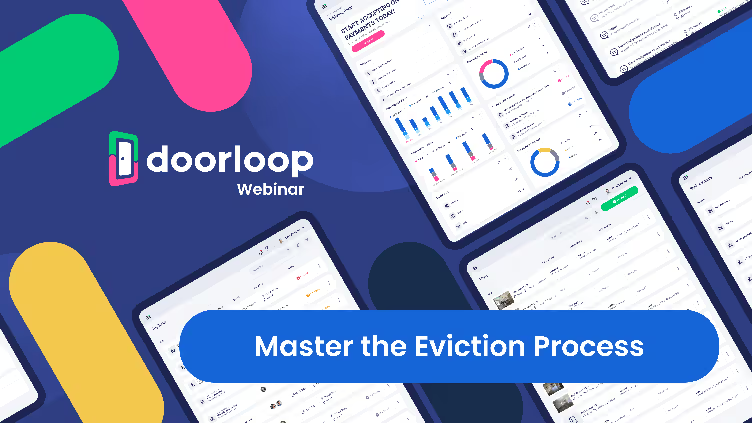No landlord wants to have to deal with troublesome tenants, and especially not an eviction.
For this reason, many landlords choose to search for eviction records as part of the tenant screening process.
This extra step has countless benefits and can potentially save the landlord thousands of dollars in the future.
In this guide, we will be going over some of the reasons that compiling an eviction report can be useful as well as where you can get a hold of a tenant's eviction record.
To begin, let's go over the reason for searching for eviction records.
Why Search For Eviction Records?
It is not unreasonable for a landlord to assume that a tenant with a rough history of evictions will do the same thing again. The behavior that the tenant displayed to cause the eviction can very well be repeated at the landlord's property. And, since an eviction can be extremely expensive, the landlord should try to avoid that.
Evictions are very rare and typically only occur in the worst circumstances. This includes extreme damage to the rental property, the tenant not being able to pay rent or illegal behavior within the property.
Luckily for the landlord, there are multiple ways to bring up a tenant's past eviction history. And, along with each eviction case, you can probably find the reason for the eviction process. If a potential tenant has a history of evictions with serious infractions, the landlord has strong reason to reject their rental application.
However, depending on the reason, it could have just been a hard time for the tenant in the past. In these cases, it may be a good idea to speak to the tenant about the history before writing them off completely. Before getting into the process, let's discuss discriminatory practices for a moment.
Avoiding Discriminatory Practices
When dealing with tenant records, it is essential to be as impartial as possible. Simply seeing an eviction on a report does not mean that you should not rent to the tenant.
It is the landlord's responsibility to do their due diligence to see whether or not the tenant should be rejected. Some eviction cases are a result of an unfair landlord retaliating against the tenant for reporting them.
If the tenant feels that they have been unfairly rejected, they can open a discrimination lawsuit. And, if you don't know yet, this looks far worse than an eviction case.
If you want to learn more about your state’s eviction laws, you can visit DoorLoop’s Law Page and find your state.
So, now that we know all about some of the reasons that searching for eviction records, let's go over some of the ways that these records can be found.
How To Find Tenant Eviction Records
During the tenant screening process, there are different sources for different things, like an eviction record, credit report, and background check. Below, we will be explaining some of the different ways that landlords can get their hands on eviction reports for potential tenants.
Court Records
The quickest and easiest way to get your hands on an eviction report is by searching through your state or county eviction records. After searching online for a few minutes, you can find a site where simply inputting the tenant's name will provide their entire eviction record.
Although some states may not provide all the information about the case, you can typically get some sort of idea from the information you do get. However, if there are evictions there, it is important not to jump the gun.
After reading all the information provided, you should speak to the tenant and hear their side of the story. Since wrongful evictions do occur, it is difficult to pinpoint whether or not the eviction was legitimate. Also, since very few landlords even give tenants with evictions a chance, the tenant could be struggling to find an apartment.
There could also be the case where the tenant was evicted but the tenant won. This may not show up in the public records so it is important to make sure the information you have is as accurate as possible.
Hiring a Third-Party
An alternative to searching for the records yourself is to hire someone else to do it. This could mean software, an individual, or a dedicated service. Many programs that conduct background checks also give you the ability to search through eviction records. Many also allow you to investigate multiple tenants at the same time, making the process a lot faster.
These types of services are especially useful if the tenant is moving from out of state. Since it may be more difficult to access public records for someone out-of-state, hiring a third party may be the best way to go.
Also, apart from discovering prior evictions, these services can also provide the landlord with credit reports and background checks, all in one place.
Using Tenant References
Asking potential tenants for references from previous landlords can give you a fuller picture of the tenant. These references can give you information that is not included in the eviction report.
This includes any "cash for keys" situations. This situation is where a landlord pays a tenant a sum of money for them to terminate the lease agreement. Since this is not a formal eviction, it will not show up in any eviction or court records.
The references can also inform you about issues they encountered with that tenant. This could include issues with past due rent, additional court costs from the tenant, or other undesirable behavior.
In-Person Search
A landlord can also conduct an in-person search for the tenant's case files. To do this, the landlord can visit the courthouse and simply as for the tenant's files.
Most states do charge a fee for this kind of service, but it could be worth the money. Doing this is the best way to view the entire case file and see every document filed under the tenant's name. The landlord can also search for any orders issued by the court, which will typically not be available online.
































.svg)
.svg)

